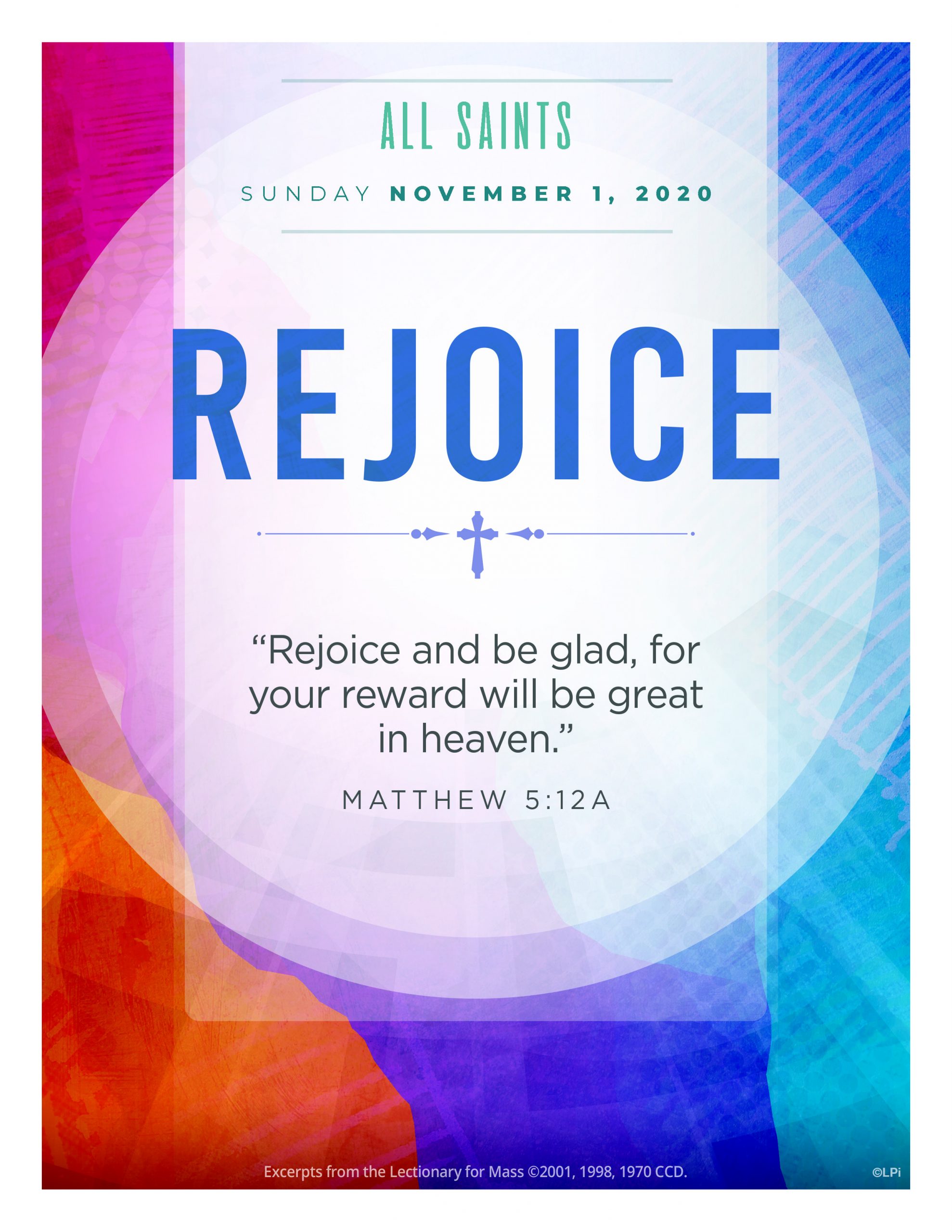What Does “All Saints Day” Mean To Me?
October 29, 2020

What does “All Saints Day” mean to me? Do you realize you are called to be a saint? How do I do that? Can people experience the holiness of GOD when I interact with them? Am I being Christ to the world? In the Gospel we hear Jesus’ beatitudes that begin the Sermon on the Mount. They are a summation of the values and commitments that lead to authentic holiness, and teach us to be like Christ and become saints. In case you haven’t noticed, our world is becoming a frightful, hateful place.
“Blessed are the poor in spirit, for theirs is the kingdom of heaven.” Someone prays every day, but always offers prayers for others and not just him or herself. A person gives up some of their free time in order to volunteer. Family works to ensure that God is part of their daily lives.
“Blessed are they who mourn, for they shall be comforted.” The families and friends of the victims of the coronavirus are in despair, but the Lord shall provide for them, whether now or in the future. A person loses a very close family member. God reminds us that by following Him we will be reunited with them in the hereafter.
“Blessed are the meek, for they shall inherit the earth.” One individual feeds a homeless individual. Another individual anonymously leaves clothing for a clothes drive.
“Blessed are they who hunger and thirst for righteousness, for they shall be satisfied.” We see all people as children of God. Volunteers peacefully march against an unjust law. A student stands up for an individual who is being bullied, teased, and thereby tormented.
“Blessed are the merciful, for they shall receive mercy.” Anytime someone truly forgives another, mercy is shown. A life is spared at the last minute by a merciful leader. A child forgives someone who hurt him or her at school.
“Blessed are the pure of heart, for they shall see God.” An individual lives their life according to the scriptures, completely opening their heart to the message. Children play together at a park with no bias or prejudice of one another. A person anonymously completes a good act without expecting a reward in return.
“Blessed are the peacemakers, for they shall be called children of God.” We treat all people with respect. People forgive family members who have hurt them.
“Blessed are they who are persecuted for the sake of righteousness, for theirs is the kingdom of heaven.” A person proclaims that he or she is a Christian, even though the individual knows that there will be consequences.
The beatitudes protect the value of human life. Slaves, women, children, the infirm, refugees, even the unborn found meaning and protection in its shelter. Those who scream for “equal rights” today, and who march for “justice”, and demand that we “end oppression”, are using Christian logic to back up their arguments, even while many of them repudiate Christianity. It transformed the way people thought about the purpose of human life. Up till then, life was pretty much about scrambling to survive. Eat, drink and be merry for tomorrow you die. The Beatitudes raised the bar considerably. Now life was given to love, serve, and increase goodness on the earth. “Leave things better than you found them,” and all the banter today about “finding your purpose”, derives its genetic code from the Beatitudes. It transformed the way people thought about the destination of human life. Beatitudes inserted eternal certainty into an otherwise meaningless existence. It promised a kingdom of heaven which could reward those who served it. Now rather than rage at the machine, a person can experience something unheard of in this nasty, short and brutish life – joy.
Deacon Jerry
